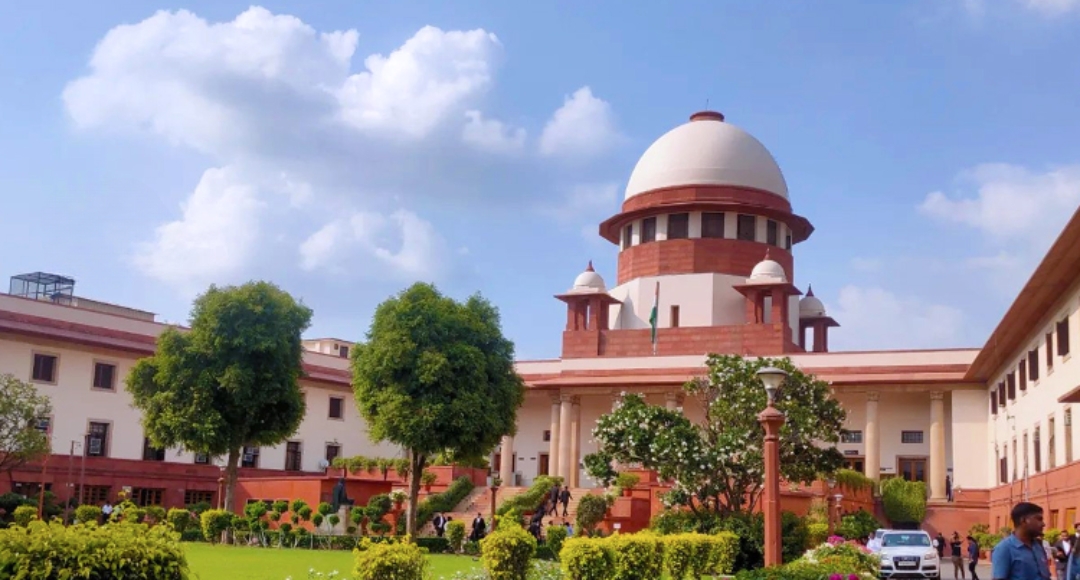Legal disputes can stretch for years, causing stress, uncertainty, and financial hardship especially when public property is involved. But in a recent case, the Supreme Court has offered clarity and hope, ruling that Section 18 of the Limitation Act applies to the Public Premises (Eviction of Unauthorised Occupants) Act, 1971. This means that a fresh limitation period can begin if there’s a clear acknowledgement of dues, even during prolonged legal battles.
The Dispute That Triggered the Landmark Ruling
The issue arose when New Mangalore Port Trust (NMPT) allotted land to a licensee in 2003 under a payment agreement. In 2010, NMPT revised the license fee retrospectively from 2007, which led to a sharp disagreement. The licensee challenged the revision in court, arguing it was unfair to impose a new rate on past years. Although a Single Judge supported NMPT’s decision, the licensee didn’t give up and filed further appeals.

The Turning Point: Acknowledgment of Dues
While the legal fight continued, NMPT issued demand notices. The licensee objected, claiming the matter was still in court and that it wasn’t time to pay. This response turned out to be critical. The Supreme Court interpreted this behaviour as an acknowledgement of liability meaning the licensee recognized the dues but was waiting for a legal verdict. Under Section 18 of the Limitation Act, such acknowledgement can extend the time limit to recover the dues.
Limitation Act Applies in Full, Not in Parts
The licensee tried to argue that only a specific part of the Limitation Act namely Section 3 and Article 52 of its Schedule—should apply to this case. But the Court dismissed that argument, stating clearly that once the Limitation Act is invoked, all its provisions apply, including Section 18. This ensures consistency and fairness in how deadlines are calculated in legal matters involving public property.
Courts Must Wait for Appeals
Another important message from this judgment was directed at how courts handle overlapping cases. The Supreme Court observed that the High Court should not have proceeded with the writ petition while the intra-court appeal was still pending. Since the outcome of the appeal would directly affect the demand dispute, it was only logical to wait before making any ruling on the petition.
Can’t Delay Payment and Then Hide Behind Time Limits
Perhaps the strongest message of all from this judgment is about fairness. The licensee had already lost their challenge in front of the Single Judge. Instead of complying with the decision, they kept delaying payment by saying the matter wasn’t settled yet. The Court firmly held that you cannot benefit from technical objections if you’re simply using them to stall. If you’ve acknowledged a debt even indirectly you remain responsible for it.
What Happens Next in the Case?

The Supreme Court restored NMPT’s petition and ruled that it should be heard only after the intra-court appeals are decided. If the appeals are allowed, the demand for payment will be withdrawn. But if the licensee loses again, they’ll be liable to pay the full amount with interest. Either way, the judgment ensures that justice is not denied just because of a ticking clock.
A Victory for Accountability and Fairness
This judgment serves as a reminder that legal processes, though sometimes slow, are still rooted in principles of fairness and justice. It also encourages public authorities and lessors to be persistent in claiming dues that are legally owed. At the same time, it reminds occupants of public premises that delaying tactics and vague objections won’t shield them forever.
Disclaimer: This article is intended for informational purposes only and does not constitute legal advice. The content reflects a recent Supreme Court judgment and is meant to explain the ruling in a simple, easy-to-understand format. For personal legal concerns, always consult a qualified lawyer or legal expert.
Also Read:
When Law and Love Unite: Supreme Court Applauds Piplantri Tree Tradition
Supreme Court Slams Overpriced Lawyers: Justice Must Be Accessible to All






